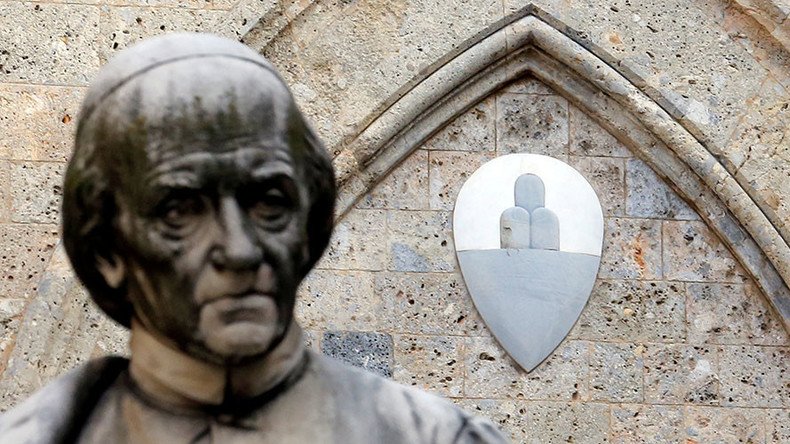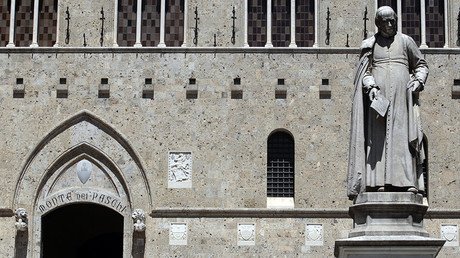Italy's troubled Monte dei Paschi bank faces billions in legal claims

Italy’s third-largest and the world’ oldest bank, Monte dei Paschi de Siena is facing potential legal claims for more than €8 billion ($8.5 billion) in a series of civil lawsuits, Reuters reported.
The ailing bank has already set aside €627 million to cover claims.
On Monday, the Italian market watchdog approved the bank’s capital raising plan. Monte dei Paschi was acknowledged as Europe's weakest major bank in July industry stress tests and wants to raise €5 billion through a debt swap and share sale.
Survival plan: World's oldest bank to cut 2,600 jobs, close 500 branches, sell off bad loans & raise capital https://t.co/ETp7iKXWcP
— RT (@RT_com) October 25, 2016
The European Central Bank has required a detailed funding plan from the lender for each year to 2018 after finding the bank’s liquidity position had weakened.
Monte dei Paschi is on the point of collapse unless it receives state support. It has already been bailed out twice but is likely to need a third multi-billion euro cash injection from the government.
However, EU regulations ban member states from using public money to support failed banks.
The Tuscan bank needs to raise more than seven times its market value in cash to sell bad loans and boost capital. Banca Monte dei Paschi has over €360 billion ($400 billion) of non-performing loans, according to the IMF.
After posting a €1.15 billion loss in the quarter through September, the bank said it would cut 2,600 jobs and close 500 branches.
Founded in 1472, Paschi employs over 25,000 people and has almost 2,000 branches.
Experts warn the bank’s possible collapse may have a domino effect on Italy's battered banking sector, where other lenders may also need fresh capital to stay afloat.
They also predict market turmoil and turbulence in the coming months if Italy votes against constitutional reforms proposed by Prime Minister Matteo Renzi in Sunday's nationwide referendum. If Renzi loses the vote the country will enter a period of considerable uncertainty as it will need to form a transitional government and find a new PM.
Experts add that investors will be less likely to help recapitalize Italy's risky banks.













